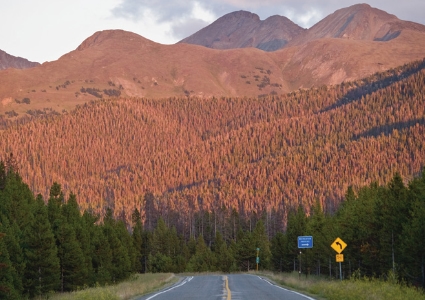Polling

Suggest an important issue not listed in this sub-category (). (Maximum 60 Characters)
Forest infestation

For the past 15 years, our great western Conifer forests have been under siege by the mountain pine beetle. This insect is responsible for killing over 100 million acres of forest pine trees across the U.S. and Canada. In the East, the emerald ash borer and the gypsy moth are also causing much forest damage. Scientists claim climate change is much to blame for our beetle problem. They say warmer weather and severe drought has caused bark beetle populations to explode while enabling them to move to higher altitudes where they encounter trees that have not developed defenses against them. Pine beetles normally attack weakened trees. However, with record-breaking beetle populations and more drought-stressed trees, even relatively healthy trees are being infected. Longer summers and warmer winters also assist beetle populations by enabling more beetle larva to survive a moderate cold season, and allowing these voracious pests to spread farther than they once could. With scientists predicting future droughts to be more intense, occur more often and last longer, the fate of our forests is not promising. In an attempt to discover its weakness and stem its devastation, scientists have sequenced the genome of the mountain pine beetle. Currently, the only way to halt the infestation is preventative - protecting the tree by killing the beetles before they infest it with insecticides containing permethrin or carbaryl.
Pending Legislation: S.808 - Expediting Forest Restoration and Recovery Act of 2023
Sponsor: Sen. John Thune (SD)
Status: Senate Committee on Agriculture, Nutrition, and Forestry
Chair: Sen. Debbie Stabenow (MI)
Pending Legislation: S.808 - Expediting Forest Restoration and Recovery Act of 2023
Sponsor: Sen. John Thune (SD)
Status: Senate Committee on Agriculture, Nutrition, and Forestry
Chair: Sen. Debbie Stabenow (MI)
Poll Opening Date
March 25, 2024
Poll Closing Date
March 31, 2024
Democracy Rules respects the privacy of your information.
See PRIVACY STATEMENT
See PRIVACY STATEMENT